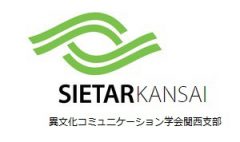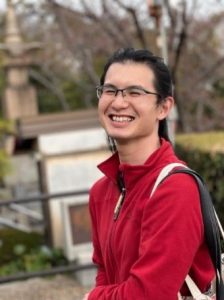Speaker: Sri Guru Labdhawara Kusuma (Divine Light International)
Date: May 27, 2023 (Saturday)
Time: 14:00-17:00
Fee: Free for all
Language: English
ZOOM Online presentation *registration required*Contact: kansai@sietar-japan.org to get the Zoom link; for any questions.
講演者: スリ・グル・ラブダワラ・クスマ (ディバイン・ライト・インターナショナル)
日時: 2023年5月27日(土)
時間: 14:00~17:00
参加費: 無料
言語: English
Zoomオンラインプレゼンテーション ※ 事前申込みが必要です。
連絡先: Zoomリンクの取得、ご質問はfujimotodonna@gmail.comまで。
Description: Hinduism is the world’s oldest religion, according to many scholars. Many Hindus argue that their faith is timeless and has always existed. Unlike other religions, Hinduism has no one founder but is instead a fusion of various beliefs. It is practiced by the majority of the population in Bali, which is quite a contrast since 80% of Indonesia is Muslim. Jnana Buda Siwa is a Tantric practice: Jnana means Holy knowledge, Buda means God within (which is called “Atman”) and Siwa means God outside oneself. This tradition is taught to help followers remove forms of darkness (laziness, greed, anger, materialism, stealing, etc.) by doing spiritual practice through the guidance and blessing of the guru (teacher). In this presentation our guru will explain Hinduism and will show how practitioners are guided to spiritual awareness.
概要: 多くの学者によると、ヒンドゥー教は世界最古の宗教です。 多くのヒンズー教徒は、自分たちの信仰は時代を超越したものであり、常に存在していたと主張しています。他の宗教とは異なり、ヒンドゥー教には創設者はなく、さまざまな信仰の融合です。 インドネシアの 80% がイスラム教徒であるため、これはバリ島の人口の大多数によって実践されています。ジュニャーナ・ブダ・シワはタントルの実践です。ジュニャーナは聖なる知識を意味し、ブダは内なる神「アートマン」と呼ばれる) 、シワは自分の外にある神を意味します。この伝統は、教祖(教師)の指導と祝福を通じて精神的な修行を行うことによって、信者が闇の形(怠惰、貪欲、怒り、物質主義、盗みなど)を取り除くのを助けるように教えられています. このプレゼンテーションでは、私たちの教祖がヒンズー教について説明し、実践者がどのようにスピリチュアルな気づきに導かれるかを示します。
Presenter: Born I Wayan Linggen, Sri Guru Labdhawara Kusuma is an international spiritual master of Jnana Buda Siwa and it’s secret tantra knowledge. He founded Divine Light International Study Group, an international spiritual, social, and humanitarian foundation. He promotes and brings people worldwide to realize their true self, and to create harmony among fellow human beings with nature. He has given guidance and care to a wide range of people from villagers in his community to celebrities such as Sting and Chow Yun Fat among others. He teaches different types of yoga as an introduction and gateway to Jnana Buda Siwa’s sacred teaching.
講演者: 本名ワヤン・リンゲン、スリ・グル・ラブダワラ・クスマは、ジュナナ・ブダ・シワの国際的なスピリチュアルマスターであり、タントラの秘密の知識です。彼は、国際的な精神的、社会的、人道的財団であるディバインライトインターナショナル研究グループを設立しました。彼は世界中の人々が真の自己を実現し、仲間の人間と自然との調和を生み出すことを促進し導きます。彼は、コミュニティの村人からスティングやチョウ・ユンファなどの有名人まで、幅広い人々に指導とケアを提供してきました。彼は、ジュニャーナ・ブダ・シワの神聖な教えへの導入とゲートウェイとして、さまざまな種類のヨガを教えています。



